Wrong and Dangerous
Wrong and Dangerous
Ten Right-Wing Myths about Our Constitution
Garrett Epps
Rowman & Littlefield Publishers, Inc.
Lanham Boulder New York Toronto Plymouth, UK
Published by Rowman & Littlefield Publishers, Inc.
A wholly owned subsidiary of The Rowman & Littlefield Publishing Group, Inc.
4501 Forbes Boulevard, Suite 200, Lanham, Maryland 20706
www.rowman.com
10 Thornbury Road, Plymouth PL6 7PP, United Kingdom
Distributed by National Book Network
Copyright 2012 by Garrett Epps
All rights reserved . No part of this book may be reproduced in any form or by any electronic or mechanical means, including information storage and retrieval systems, without written permission from the publisher, except by a reviewer who may quote passages in a review.
British Library Cataloguing in Publication Information Available
Library of Congress Cataloging-in-Publication Data
Epps, Garrett.
Wrong and dangerous : ten right-wing myths about our constitution / Garrett Epps.
p. cm.
Includes bibliographical references and index.
ISBN 978-1-4422-1676-1 (cloth : alk. paper) ISBN 978-1-4422-1678-5 (electronic)
1. Constitutional lawUnited StatesInterpretation and construction. 2. Constitutional lawUnited StatesPopular works. 3. Constitutional amendmentsUnited StatesPopular works. 4. ConservatismUnited States. 5. LawUnited StatesInterpretation and construction. I. Title.
KF4550.E66 2012
342.7302dc23 2012012355
 The paper used in this publication meets the minimum requirements of American National Standard for Information SciencesPermanence of Paper for Printed Library Materials, ANSI/NISO Z39.48-1992.
The paper used in this publication meets the minimum requirements of American National Standard for Information SciencesPermanence of Paper for Printed Library Materials, ANSI/NISO Z39.48-1992.
Printed in the United States of America
This book is for all my studentsyoung and old; left and right; past, present, and future. Have fun storming the castle!
A little patience, and we shall see the reign of witches pass over, their spells dissolve, and the people, recovering their true sight, restore their government to its true principles.
Thomas Jefferson, 1798
Acknowledgments
Katrina Vanden Heuvel, editor of The Nation , commissioned me to recount my day in Constitution school under the title Stealing the Constitution, which began my work on far-right constitutionalism. Steve Farley (D-28) of the Arizona House of Representatives invited me to speak to a group of legislators at the Arizona State Capitol in March 2011. It was for that speech that I first came up with the (now much altered) Ten Myths list. Bob Cohn and John Gould of atlantic.com, superb editors, published the myths list as a series of columns in the summer of 2011. Kit Rachlis, editor of The American Prospect , patiently helped me turn my thoughts on campaign finance and civic equality into a longer essay. Josh Swanner and Taylor Novak, students at the University of Baltimore School of Law, served as research assistants, proofreaders, editors, and joke providers for this book. Bob Deans, an old comrade from Southern politics and journalism, offered not only encouragement but also genuine help, and introduced me to Jonathan Sisk, the patient editor at Rowman & Littlefield who undertook to publish the book. Rafe Sagalyn graciously provided general counsel on book contracts. My colleague Elizabeth Samuels was a sounding board, offered encouragement, and was a general force for good, as was David Ignatius. Kent Greenfield, Tamara Piety, and Adam Winkler read sections of the book and offered suggestions. Ian Millhiser of the Center for American Progress, whose columns monitoring the follies of the Right are a constant inspiration, underscored the urgency of the task by inviting me to take part in a panel at CAP on What Happens if the Tea Party Wins? Finally, my writing buddy for forty years, on and off, Lynn Darling, helped me meet my deadlines. Little birds are writing interesting books.
Introduction: Stealing the Constitution
In October 2012 I spent a full day in a windowless church basement in Northern Virginia, as a student at a seminar on The Substance and Meaning of the Constitution. My day job is constitutional scholar. I have spent the last twenty years studying the text and history of the Constitution, and teaching students about the ways in which courts have applied our fundamental law to the practical problems of our society. But I have to confess I knew nothing about the history I learned at Constitution school.
The truth about the Constitution is this: God wrote it. He handed it down to Moses, who applied it to govern the people of Israel. This divine law was carried from ancient Israel to Northern Europe after the Assyrian Conquest in 720 BCE by the famous lost tribes of Israel. After much wandering, these chosen people settled in the British Isles, where they took the name Anglo-Saxon. They ruled their medieval kingdom by the law of Moses, but its purity was lost after the Norman Conquest in 1066 CE. The Founding Fathers of the new United States, inspired by the Lord of Hosts, wrote the Constitution to restore His Anglo-Saxon kingdom.
Since it is Gods will that Americans live like medieval Saxons, it shouldnt surprise anyone that virtually all of modern American life and government is unconstitutional: Social Security, the Federal Reserve, the Environmental Protection Agency, the Civil Rights Act of 1964, hate crime lawsillegal inventions of a people who have been led astray by false prophets. The trouble began with the Civil War, a needless conflict in which the wrong side won. Slaves were happy and carefree in slavery. Racism was caused by pushy Northern abolitionists. State governments are not required to observe the Bill of Rights. The very idea of separation between church and state is a pernicious myth; the First Amendments religion clauses establish nondenominational Christianity as the religion of America.
The seminar I attended was organized by the National Center for Constitutional Studies, nestled securely in the metropolis of Malta, Idaho (2010 Census population: 177, 98 percent of them white). The center is the brainchild of the late W. Cleon Skousen, a former Salt Lake City police chief (he once raided the mayors regular poker game) and FBI agent.
Students paid $50 each for the seminar. They received a carefully prepared workbook with fill-in-the-blank questions such as Events since 1913 have demonstrated that the original intent of the Founders in setting up the Senate as a legislative guardian has been largely emasculated by the Seventeenth Amendment. Students also had the chance to buy the Centers expensively produced textbook, The Making of America: The Substance and Meaning of the Constitution , which explains Skousens ideas in greater detail. The long section on slavery in this textbook has been amended since the 1980s, when the Center attempted to persuade California to adopt it as an official high school textbook. They abandoned the attempt after news reports alerted people that the book referred to black children as picaninnies. Now it carefully indicates where the word once appeared by the use of brackets: If [negro children] ran naked it was generally from choice, and when the white boys had to put on shoes and go away to school they were likely to envy the freedom of their colored playmates.
The instructor was Lester Pearce, an Arizona justice of the peace. Pearce is the brother of former Arizona state senator Russell Pearce, author of Arizonas notorious anti-immigrant law, SB 1070. Lester tended to wander off into discussions of how he refuses to comply with court rules requiring him to allow defendants in his court to speak Spanish. Arizonas open carry weapons laws, which permit citizens to strap pistols to their hips and stroll downtown, would, he predicted, save Arizona when the United Nations sent its blue-helmet troops into the state to enforce bogus human-rights laws. Pearce admitted that much of what he does in Justice Court doesnt exactly follow the law as laid down by higher courts, whose decisions he is technically supposed to follow. But those court decisions are just other judges opinions, he said. He doesnt really need to pay attention; he has his own views. Pearce got rapt attention from the fifty people in the audience, although one boy near me spent his time on a detailed sketch of an assault rifle.

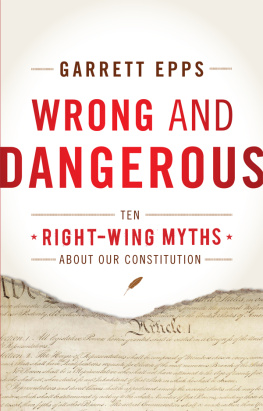
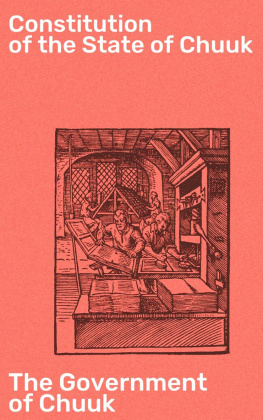

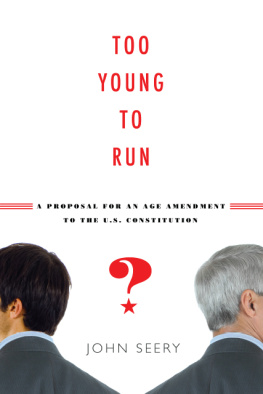
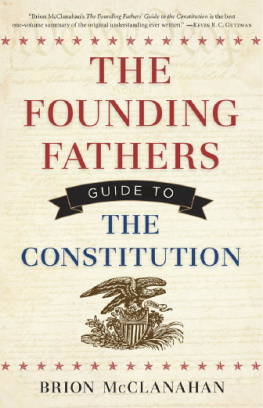
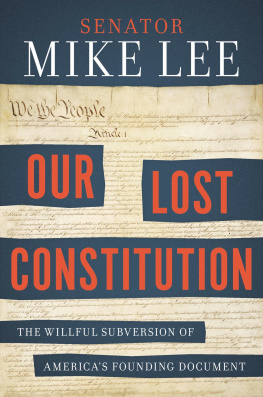
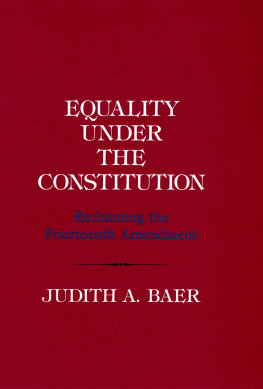
 The paper used in this publication meets the minimum requirements of American National Standard for Information SciencesPermanence of Paper for Printed Library Materials, ANSI/NISO Z39.48-1992.
The paper used in this publication meets the minimum requirements of American National Standard for Information SciencesPermanence of Paper for Printed Library Materials, ANSI/NISO Z39.48-1992.